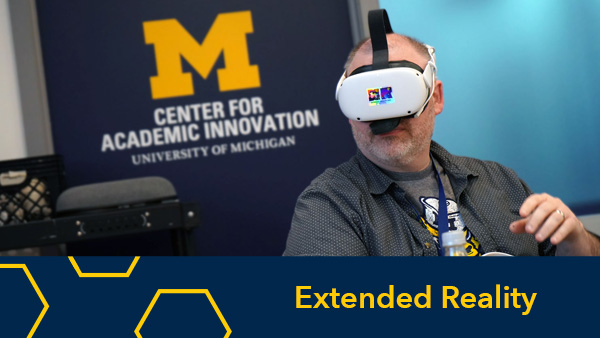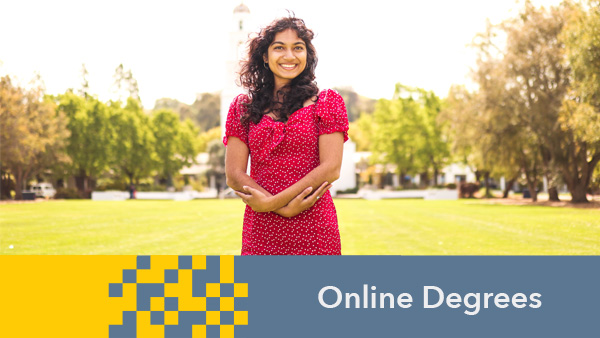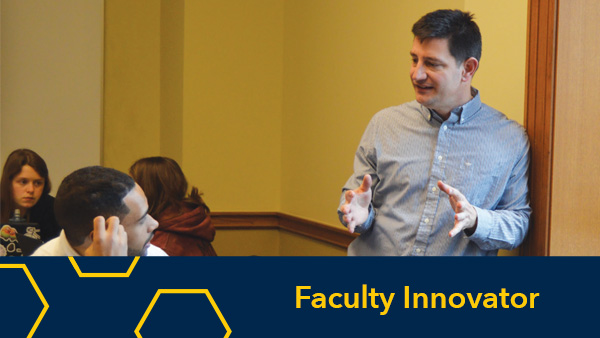This article was originally posted on 11/23/2015 on EvoLLLution
James DeVaney, Associate Vice Provost for Digital Education & Innovation
@devaneygoblue

Last week I had the opportunity to represent the University of Michigan at the edX Global Forum in Washington DC. The multi-day forum opened at a reception in the awe-inspiring Great Hall of the National Academy of Sciences. More than four hundred higher education leaders representing many of the world’s greatest universities gathered beneath the dome.
A month earlier we strengthened the University of Michigan’s commitment to shaping the future of learning in the digital era when we announced our new strategic partnership with edX. Michigan has been a pioneer in digital learning and learning analytics and has reached more than 3.6 million lifelong learners through our massive open online courses (MOOCs) since joining Coursera as a founding partner in 2012. Given the success of our partnership with Coursera, several Forum participants wanted to know what led the University of Michigan to decide to partner with edX, what we hope to gain from the partnership and how students and global learners ultimately benefit.
As I described our commitment to redefining residential education, providing personalized learning at scale and creating inclusive learning environments, I couldn’t help but notice Prometheus and the pendulum, two great symbols of transformative learning.
I imagine anyone who enters the Great Hall at the National Academy of the Sciences might quickly find a source of inspiration. I was born and raised in a university town and have spent my career working with institutions committed to discovery. So for me such an engrossing space, decorated with an illustrated history of science and trumpeting the advent of reason, is sacred.
A mural painting on the north wall of the Great Hall shows Prometheus lighting his torch at the chariot of the sun god Helios to bring fire to Earth for the benefit of mankind. Below Albert Herter’s mural is a quote from Aeschylus’s play Prometheus Bound describing the transformative effect of science and learning. As the reception carried on, I looked often at Prometheus whose fire provided a warm reminder that the current digital era in higher education can be truly transformative if we have the foresight and confidence to act audaciously.
The mythological story of Prometheus and his gift to mankind is fairly well known. I looked at the outstretched arm of this Greek god, who taught humankind to “discern the risings of the stars and their settings” and continued to exchange stories with edX partners who share Michigan’s commitment to shaping the future of learning. But perhaps it is a lesser known deity that helps to complete the metaphor. While Prometheus is typically interpreted as foresight, history has been less kind to his brother Epimetheus, traditionally interpreted as hindsight. Will university leaders identify the underlying conditions that call most for our attention and extend the outstretched arms of the academy to transform learning around the world?
Later in the Forum edX CEO Anant Agarwal exclaimed that today’s higher education community is now “operating in internet time.” There is no question that today’s technology provides new light with which to view, explore and impact the world. It is also clear that there are many paths forward. With foresight Prometheus is a hero to mankind. With hindsight Epimetheus is depicted as foolish. A great challenge for higher education today is to balance foresight and a willingness to act against the cost of moving slowly. Today’s stakes are high. We look carefully at partners to make certain that they share our commitment to unlocking the talent and passion of learners.
At the center of the Great Hall a sixty-foot Foucault pendulum is suspended from the eye of the dome. Originally conceived as an experiment to demonstrate the rotation of the Earth, the pendulum reminds us of the tools we need to push the boundaries of discovery.
At Michigan we’ve embraced a digital innovation strategy that harnesses all we are learning from experimentation at the intersection of digital learning and learning analytics in order to redesign the residential education experience for this century and for this crowded and connected world. We see our partnership with edX as an opportunity to strengthen our ability to design and create far more inclusive environments for learning. Such environments will make the resources of the university available to the broadest possible range of learners, advancing the vision of equitable and advanced education for all. As United States Chief Technology Officer Megan Smith addressed the Forum she succinctly described this potential for MOOCs and other digital learning innovations: “Inclusion is innovation.”
Any good strategy needs a north star. For the University of Michigan, digital innovation is about reimagining residential learning and developing inclusive learning environments to enable student choice, catalyze personalization at scale, and ultimately to enable lifelong learners to change the world.
In October, University of Michigan President Mark Schlissel challenged our community to make the strongest possible connections between research and teaching and to think creatively about solving global challenges by bringing to bear the intellectual power of 19 outstanding schools and colleges to approach problems from every angle and every perspective. At the Forum, Agarwal and Smith encouraged partner institutions to “become more porous.” Academic excellence and innovation together enable inclusive learning environments and high-quality personalization at scale.
For Michigan, becoming more porous means unlocking personalized pathways to lifelong learning for the U-M community and learners around the world. We must have the foresight to harness technology and learning analytics to create more inclusive learning environments and share the torch with humankind. Our strategic partnerships with edX and Coursera align closely with these values. To choose the path of Prometheus is consistent with the Michigan saga. We celebrate the past, question the present, and position for the future. As with the pendulum, we must understand and utilize the tools and platforms that help us make sense of a complex world as we continue to deliver an uncommon education for humankind.
I returned to Ann Arbor later in the week to visit with Daphne Koller, president and co-founder of Coursera, who spoke about the future of MOOCs with U-M faculty, students and staff as part of our Academic Innovation at Michigan (AIM) series. Similar to Agarwal and Smith, Koller reminded us that there is much still to do. As a higher education community we have already reached millions of global learners. This first major wave of experimentation has revealed the magnitude of opportunity to transform lives and push the bounds of discovery.
We believe edX and Coursera provide very different models with different sweet spots for experimentation with digital learning and learning analytics. In edX we have identified a partner committed to open source, enhancing teaching and learning on campus, partnering to build new learning tools, and advancing teaching and learning through research. Both edX and Coursera are deeply committed to increasing access to high-quality education for global learners. Our own university commitment to academic excellence, innovation and inclusion requires that we continue to expand the sandbox for faculty-led experimentation in order to understand and realize the potential of personalization at scale.
The first few years of MOOCs led us to rethink the way we teach, to develop courses with global reach, and to meet the needs of global and largely self-directed learners. We have entered a MOOC 2.0 world. As we further expand our experimentation with digital learning and learning analytics, we aim to accelerate the adoption of new digital pedagogy, develop courses that go beyond global reach to provide global perspective, and to create far more inclusive learning environments to meet the needs of diverse global learners.
Now that MOOCs are here to stay we can begin to answer a question of mythological proportions: Can we leverage MOOCs to solve some of the most challenging global problems of our time? The torch is ready. Do we have the foresight to fully extend our reach?
This is the conclusion of James DeVaney’s two-part series discussing the University of Michigan’s partnership with both edX and Coursera. To read the first installment, please click here.
Image by Another Believer (Own work) [CC BY-SA 3.0 (http://creativecommons.org/licenses/by-sa/3.0)], via Wikimedia Commons


